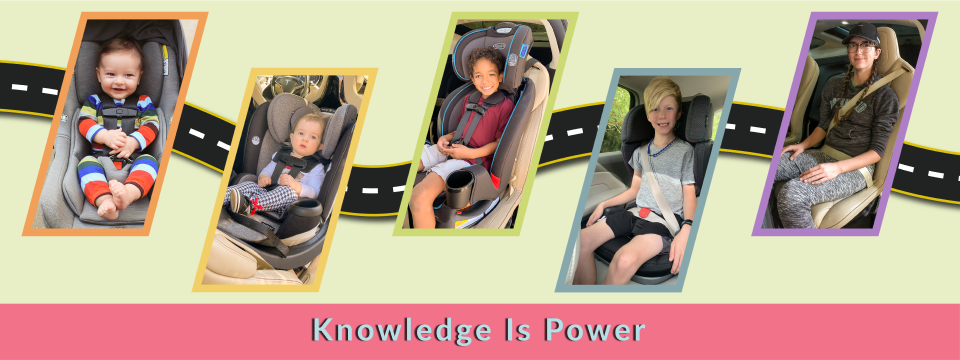Most people know me as a child passenger safety advocate, but few know that before I developed my obsession with car seats, my child-safety passion revolved around drowning prevention. With summer fast approaching, the topic is more pertinent than ever.
There are many steps people can–and should–take to prevent drownings. Fences, alarms, pool covers, and, of course, parental supervision. Another layer of protection comes from teaching children how to swim. If your young children don’t already know how to swim, please consider enrolling them in lessons.
This has been a bit of a controversial topic in the past. For a long time the American Academy of Pediatrics advised against swimming lessons for children under age 4. They said there was no proof that swimming lessons for smaller children did any good. They also worried that parents wouldn’t watch their kids as closely if they thought their kids could swim.
The problem is that it’s very difficult to prove a negative. How can we demonstrate that a child didn’t drown because that child had taken swimming lessons, or that they would have died had they not taken lessons?
It’s also true that some parents probably would become complacent and not watch their kids around water because they figure their child is “drown-proof,” but that is where emphasis on parental supervision needs to come in.
Last year the AAP did wind up revising their recommendations to include swimming lessons for children over age 1. They still wouldn’t be thrilled with my having enrolled both of my children in lessons at six months–again because there’s no proof it helps–but they do now believe that toddlers and preschoolers can benefit from learning to swim or learning water survival skills.
I liken swimming lessons to teaching kids how to cross the street. You don’t want a 2-year-old crossing the street alone, but that doesn’t mean you don’t talk to him about it. You tell him not to run into traffic, to cross while holding hands with an adult, and to look both ways. You certainly never expect him to be alone next to a street street, but if he ever is, maybe there’s a chance that he’ll remember your lessons.
The same goes for water. We never expect our children to be near a pool, river, lake, or ocean by themselves, but even the most attentive, careful parents have lapses or miscommunications. If young children find themselves near water, isn’t it better that they have learned about potential dangers? If they wind up in the water, isn’t it better that they have learned skills that might save their lives?
Of course knowing how to swim or get out of a pool is only one aspect of a cohesive system of safeguards. I like the “Safer 3” approach to pool safety:
- Safer Water: Install barriers and maintain safety equipment
- Safer Kids: Have constant adult supervision and teach kids to swim
- Safer Response: Know CPR and first aid, and have a phone with you at all times
In the coming months, play safe around the water, buckle up, stay hydrated, and try not to get a sunburn. (I have already failed on that last point–hopefully you’ll be luckier.) Most of all, enjoy time with your family and have a fun-filled summer!

Great post – just wanted to link to a fantastic post by a Coast Guard safety expert and former rescue swimmer – Drowning Doesn’t Look Like Drowning -http://mariovittone.com/2010/05/154/
A friend of mine actually helped save a 6 year old last summer after reading this.
I’m SO with you… plus, the earlier a child is exposed to the water in not only a “hey, this is somewhere to play” way, but in a “We have to be safe when we are playing” way, it’s not only exposing that child to the fun, but laying the groundwork for a lifelong habit of respecting things that are dangerous.
precautions and teaching aren’t things that can be used by themselves… they HAVE to be used together…
I’m with you, Jennie–in fact, I often wonder why I went with carseats for my advocacy instead of drowning prevention. Living in desert cities for the majority of my life, pools are a way of life and so are drownings. We had 2 happen to siblings of kids in my elementary school and my mom was in the backyard and helplessly stood by because she couldn’t get into a neighbor’s backyard when they discovered their toddler in the pool. People wondered why we put a fenced off our pool when we had it built a couple of years ago since our kids are older and it’s not code to do it (>:( ) and I said it was simply the thing to do–you always fence off a pool. Always. Anyway, thanks for the timely reminder!